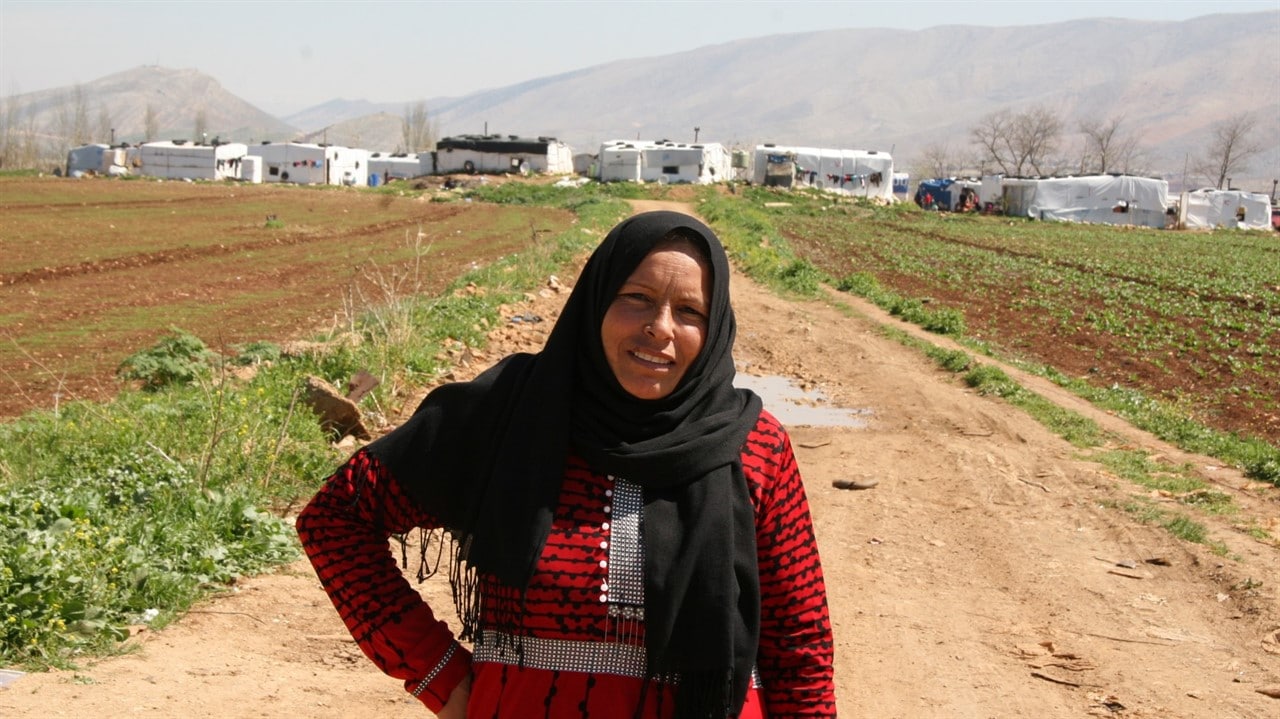After more than eight years of filming, Canadian filmmaker Noura Kevorkian’s Batata is set for its North American premiere at this year’s Hot Docs Canadian International Documentary Festival.
Batata chronicles the lives of Syrian refugees in Lebanon’s Bekaa Valley. What started as a small community of migrant workers on a potato farm swells into large refugee camps in 2012 as the Syrian revolution becomes a full-fledged civil war.
These experiences are witnessed through Maria, a matriarch of the community, the Armenian Christian landowner, Mousa, and several individuals who fled Syria. This includes family and friends of Maria, who like many others, thought the war would last only six months.
Kevorkian, who amassed more than 400 hours of footage, originally conceived the idea of documenting the small potato farming community to highlight the current state of the Syrian-Lebanese relationship. Personally, her father is Lebanese, and her mother is Syrian. However, the plan had to change course as the war escalated and Kevorkian became further entrenched in the lives of the refugees with more domestic and global events unfolding.
To capture the more intimate, natural moments from the communities, Kevorkian says she became a “one woman show” – she lacked a crew or any major equipment, and relied on her own improvisations to get her shots around the camps. It was necessity to work alone, she says, to access each individual story authentically. There was an initial plan to return to Lebanon to continue filming, but it was halted with the onset of the COVID-19 pandemic in March 2020. Kevorkian stayed in Toronto instead to began editing, which took two years to complete.
Throughout Batata the news updates narrate prominent moments of the war, but Kevorkian wanted to offer new perspectives for her audience. First, she wanted the everyday experiences of the refugees to be reminders that the conflict and displacement of Syrians continue today. The war rages on and some refugees still hope to return to their homeland one day. Second, the film is a reminder that life goes on amid the war. The heart-wrenching stories are balanced with happy moments of the weddings and babies being born, which offer a sense of normalcy and positivity in the camps.
With Batata making its way through this year’s festival circuit, Kevorkian defines its filmmaking experience as “difficult and harrowing,” and a stark change from her previous films. As a one woman show, she says the mental and physical toll of filming a project like this are often overlooked, especially for one as unique as the approach and rigors of the independent work. Nonetheless, Kevorkian hopes with Batata she has shown the world she has the talent to continue telling these important stories.
Batata premieres on April 30 at the Varsity Theatre and will have a second showing at the TIFF Bell Lightbox on May 6. The film will be available online through Hot Docs until May 8.
Kevorkian’s other films include 23 Kilometres (2015) and Anjar (2009).
Listen to Noura Kevorkian’s full interview:









